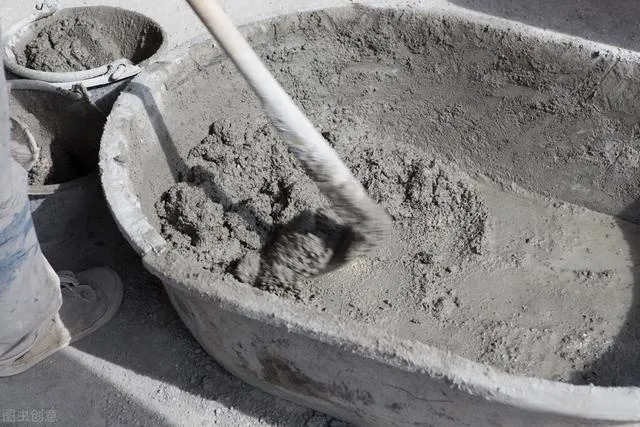
Exploring MHEC: A Key Cellulose Ether in Construction and Industrial Applications
Methyl hydroxyethyl cellulose (MHEC), also known as hydroxymethyl ethyl cellulose, is a non-ionic, water-soluble cellulose ether derived from natural cellulose. Chemically modified to include methyl and hydroxyethyl groups.

What Is MHEC and How Does It Work?
MHEC cellulose is widely used in industries such as construction, coatings, personal care, and cleaning products due to its excellent thickening, water retention, film-forming, and stabilizing properties.
Often abbreviated as HMEC, this compound is known for improving the workability and consistency of cement-based and gypsum-based building materials. Its unique chemical structure allows it to dissolve in cold water and form a smooth, uniform solution without clumping. In comparison to other cellulose ethers, hydroxymethyl ethyl cellulose offers a balance between performance and affordability, making it a preferred choice in various formulations.
Applications and Benefits of MHEC Powder
MHEC powder is typically used in dry mix mortars and construction chemicals. Because of its ease of blending and long shelf life, it is ideal for large-scale production of tile adhesives, plaster, wall putty, and self-leveling compounds. When rehydrated, the powder rapidly dissolves and delivers consistent performance in thickening and moisture retention.
There are many practical methyl hydroxyethyl cellulose uses. In construction, it enhances adhesion, increases open time, and prevents cracking by retaining moisture in cement and gypsum applications. In paints and coatings, it provides rheology control, improved spreadability, and anti-sagging properties. In personal care, it is used as a gentle thickener in lotions and creams. Additionally, it acts as a stabilizer in detergent and cleaning formulations.
The versatility of methyl hydroxyethyl cellulose MHEC means it is frequently chosen for applications that demand performance under varying temperatures and humidity. Whether it's in interior wall plasters or exterior insulation systems, MHEC enhances the durability and finish of the final product.
Market Demand and Pricing Considerations
With growing demand for sustainable, high-performance additives in construction and manufacturing, MHEC powder is increasingly popular. The methyl hydroxyethyl cellulose price depends on factors such as viscosity grade, purity, and market fluctuations in raw cellulose and chemical reagents. Typically sold in bulk for industrial use, pricing can vary from supplier to supplier and by region.
Due to its plant-based origin and biodegradable nature, MHEC cellulose supports the shift toward greener and more environmentally friendly products. Leading HMEC manufacturers continue to develop custom grades tailored for specific formulations, improving efficiency while maintaining cost competitiveness.
FAQ Title: MHEC Powder and Cellulose Ether: Your Questions Answered
What is the difference between MHEC and HMEC?
There is no significant difference—MHEC stands for methyl hydroxyethyl cellulose, while HMEC is simply another abbreviation of the same compound. Both refer to the same cellulose ether used for thickening, stabilizing, and water retention in industrial formulations.
What are the most common methyl hydroxyethyl cellulose uses?
Methyl hydroxyethyl cellulose usesinclude applications in tile adhesives, wall putty, plasters, self-leveling mortars, paints, cosmetics, and cleaning products. It provides viscosity control, prevents sagging, and improves moisture retention.
What is MHEC powder and how is it used?
MHEC powderis a dry form of cellulose ether that can be blended into construction dry mixes. When added to water, it hydrates quickly and enhances the formulation’s workability, consistency, and setting time.
Why is MHEC cellulose preferred in construction applications?
MHEC celluloseis favored because of its excellent performance in improving adhesion, increasing open time, and reducing water loss in cement and gypsum-based systems. It also improves the final surface quality of construction materials.
What factors affect methyl hydroxyethyl cellulose price?
The methyl hydroxyethyl cellulose priceis influenced by raw material costs, grade (viscosity and purity), packaging, and global demand. Bulk purchasing and long-term supplier relationships can help reduce cost per unit.
In summary, hydroxymethyl ethyl cellulose, also known as MHEC yoki HMEC, plays a vital role in modern construction and industrial formulations. Whether you're focused on enhancing building materials, stabilizing detergents, or formulating personal care products, the versatile methyl hydroxyethyl cellulose MHEC offers dependable functionality, eco-friendliness, and economic value.
-
Wholesale Powder Water Reducing Admixture CP1000: High-Performance Concrete SolutionsNewsAug.04,2025
-
Water Reducing Admixtures in Concrete: Types, Mechanisms, and ApplicationsNewsAug.04,2025
-
Understanding Water Reducing Admixtures in Concrete: Types, Benefits, and Market InsightsNewsAug.04,2025
-
Understanding Redispersible Polymer Powder :Applications and Market InsightsNewsAug.04,2025
-
Redispersible Polymer Powder: Applications and Market InsightsNewsAug.04,2025
-
Polycarboxylate Water Reducers: High-Performance Solutions for Modern ConcreteNewsAug.04,2025





















